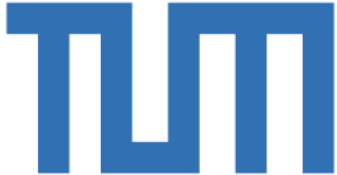Course Information
- Language: English
- Type: Seminar
- Module: IN0014, IN2107, IN4419
- SWS: 2
- ECTS Credits: 5
- Prerequisites:
- Core course in Operating Systems and Distributed Systems, or equivalent background.
- Preferred pre-requisite courses at TUM:
- IN0009 : Basic Principles: Operating Systems and System Software
- IN0010 : Introduction to Computer Networking and Distributed Systems
- IN2259: Distributed Systems
- Praktikum: Systems Programming in C++
- TUM Online: For registration you have to be identified in TUMonline as a student.
- Recommended Reading:
Content
The course will cover the recent advances in the broad field of computer systems, which mainly covers areas such as distributed systems, operating systems, or storage systems, but also interfaces to related areas like security, programming languages, networking, computer architecture, or database systems.
Objectives
The students will read, discuss, and analyze recent papers in the top conferences of this field, particularly NSDI, EuroSys, OSDI, SIGCOMM, FAST, and SOSP. Students are expected to read papers in-depth prior to class and take turns in preparing and delivering high-quality presentations of papers. Furthermore, the students will actively participate in the discussion to critic and potentially advance the state-of-the-art. More concretely, the students will learn:
- Advance scientific topics in computer systems
- Scientific report preparation
- Presentation and discussion of scientific results
Teaching and Learning Methods
Each week we will assign one paper for discussion. The discussion will be led typically by one or two presenters. (The two presenters are expected to share the responsibilities for leading the discussion.) The discussion should attempt to address the following questions:
- Context for the work: What are the goals of the work, i.e., what problem is the paper trying to solve? Why is the problem important or interesting? What is the state-of-the-art (i.e., related work) in this area? What is hard about the problem?
- Contributions of the work: What is the proposed solution? What are the key insights? Why is this the appropriate solution for this problem? What is technically interesting or novel about the solution? How thorough is the evaluation? Is the paper well written?
- Potential for future work: Can you improve on the proposed solution? What other problems in the area would be interesting and / or hard to solve? Can the techniques behind the proposed solution be used to solve other interesting problems?
We recommend that the presenters devote roughly equal amounts of time for each of the above three broad categories of questions. It is the responsibility of the presenters to manage the discussion and cover the various questions within this time. Finally, the audience are expected to read the paper and engage the presenters in an active discussion.

